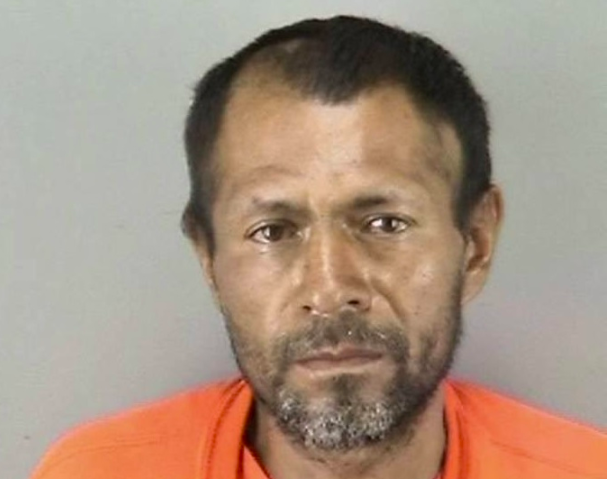A Mexican immigrant who was found innocent of all charges in a high-profile shooting case has pled guilty in federal court to a crime he clearly did not commit.
The case is, Deputy Public Defender Francisco Ugarte told me, “Just a real embarrassment, a failure of our justice system.”
José Inez García Zárate pled guilty March 14 to two counts of firearm possession—although a San Francisco jury clearly and the state Court of Appeals found that he had never possessed a gun.

The plea bargain, a press statement from the Public Defender’s Office notes
illustrates perfectly how mass incarceration works, and how zealous federal prosecutors carry awesome coercive power, capable of extracting confessions of guilt from the innocent. Statistics bear this out. Less than 2 percent of criminal defendants in the federal system ever go to trial after being charged with a crime. And those who do take the chance to go to trial rarely win. This is because federal criminal law makes it far too easy to prove the commission of a crime.
The Zárate case was a national sensation. On July 1, 2015, Zárate, homeless and recently released from San Francisco County Jail, was sitting on a chair on Pier 14. He pulled out what appeared to be a piece of clothing from under the chair.
Wrapped in that clothing was a semi-automatic gun with no safety or trigger guard. It had been stolen several days earlier, by some individual or group but clearly not by Zárate, from a federal agent who left it loaded and ready to fire in a backpack in his car while he went to get a meal.
When Zárate picked up the cloth, the gun discharged, and a bullet hit the pier, ricocheted 80 feet, and stuck and killed a tourist, Kate Steinle.
This, of course, became huge fodder for Fox News, and even local outlets, who argued that Zárate was in the country illegally and killed a white US citizen, and ought to be charged with murder.
That’s what District Attorney George Gascon did—although as far as I could tell, and I was at the trial almost every day and did extensive research on the story, it was the first time in SF history that a person was charged with first-degree murder after a gun went off and ricocheted, causing a death.
The trial lasted several weeks, and Deputy Public Defenders Ugarte and Matt Gonzalez proved conclusively that Zárate didn’t know there was a weapon wrapped up in the cloth, that it had been deposited earlier by an unknown group of people, that it had a hair-trigger and could go off easily by mistake, and that the death of Steinle was a terrible, tragic mistake, not a crime.
On Nov. 30 2017, a jury found him not guilty of all of the homicide charges and convicted him only of gun possession, which the Appeals Court reversed on the grounds that he had never actually possessed the weapon; it fell into his hands by mistake and discharged.
So: Zárate was innocent in state court of any crime. But the feds under Donald Trump, who made a huge deal of the case as part of his attack on immigrants, weren’t done.
He was charged under federal law with being an undocumented immigrant and a felon in possession of a firearm. (He had previously served felony time for the crime of illegally crossing the border), and was taken back into custody. He’s been in held by the feds ever since.
Facing the prospect of a long prison sentence, Zárate, represented by legendary lawyer Tony Serra, decided, as too many innocent people do, to plead guilty in exchange for a chance to get out.
He’s facing a potential ten years, but the recommended sentence is closer to five. And he’s already spent seven years behind bars, so he might get out on time served.
At which point he will have another felony on his record, and the government will seek to deport him.
From the PD’s Office:
His time in custody has been nearly unbearable and has taken a toll on his mental health. He is now yet another innocent person trapped in a shockingly cruel federal criminal court system who accepted a plea bargain to avoid another lengthy trial and more jail time. In the end, we are troubled and disappointed by this unjust outcome, which points to the systemic failures in our criminal system.




